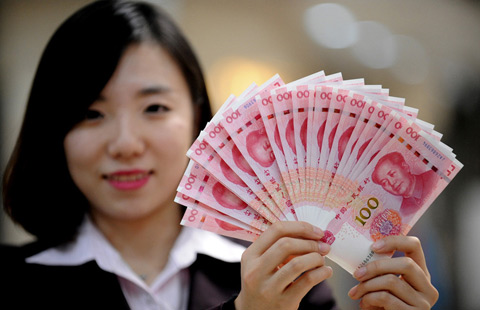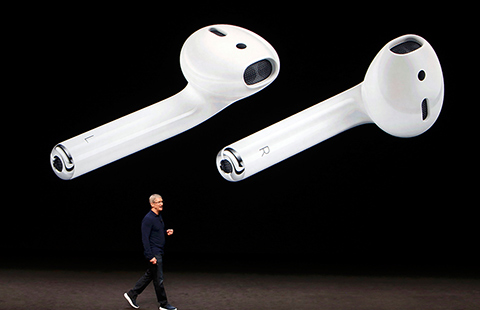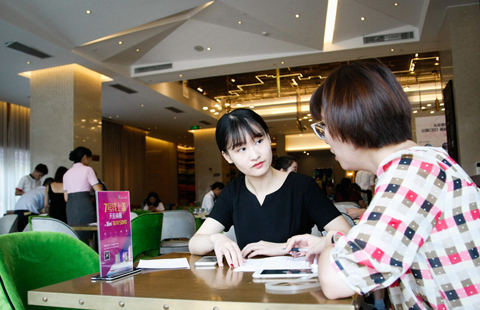Import growth points to economic stabilization
By Li Xiang (China Daily) Updated: 2016-09-09 07:36
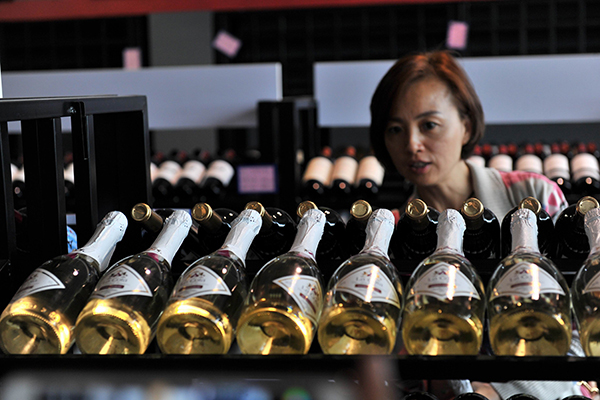 |
|
A woman examines imported wines at a duty-free shop in Qingdao, Shandong province. [Photo/China Daily] |
China's imports in August rose for the first time in nearly two years while the decline in exports decelerated, signaling that government measures to stabilize growth may have taken effect, experts said on Thursday.
Dollar-denominated imports beat expectations to increase by 1.5 percent year-on-year, reversing a 12.5 percent slump in July.
Exports in dollar terms fell 2.8 percent year-on-year, the slowest pace in four months, according to data from the General Administration of Customs.
Factors including a rebound in commodities prices, improved domestic and overseas demand, and a weaker yuan may have contributed to the better-than-expected trade data in August, experts said.
Guo Yanhong, chief strategist at Founder Securities Co, said that the improved trade data also pointed to the effective government measures to stabilize growth, including expansion of infrastructure projects and strong property sales, which helped lift domestic demand and boost import growth.
Official data showed that China's iron ore imports jumped 9.3 percent in August from a year earlier, while coal imports rose by 12.4 percent.
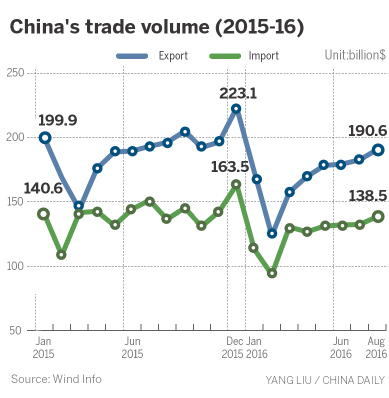
"The improvement in imports could last until September but any adjustment in China's property market could once again weigh on imports," Guo said.
Zhao Yang, an economist at Nomura Securities Co Ltd, said that the surprising surge in imports in August may be more transient than long-lasting.
Growth in imports of automobiles improved significantly, which was likely driven by post-flood purchases. Imports of semiconductor products also increased rapidly in August, which may have been supported by preparations for the launch of the iPhone 7 in September, he said.
An official index gauging future exports rose 0.9 points to 34.7, which could imply continued improvement in China's exports.
The Chinese customs administration said the improvement should continue in the fourth quarter as a recent survey it conducted among exporters showed improved confidence, rising orders and declining costs.
The G20 leaders pledged at the Hangzhou Summit, which concluded on Monday, to restore trade as a key engine for global growth. They vowed to strengthen trade and investment by lowering barriers, reducing costs and prioritizing trade facilitation measures.
But Xu Gao, chief economist at Everbright Securities Co, said that China's exports may remain subdued due to the weak economic recovery in developed countries.
- Consumer inflation still falling
- New center to build up robot parts capabilities
- Air France-KLM CEO confident of rebound in 2017
- BYD launches Europe's biggest all-electric bus fleet
- Aotu Personalized Education gets tens of millions of yuan in financing
- Overseas analysts hail China's role in G20
- Foreign firms make changes to grab China opportunities
- Australian securities can be held in Chinese currency




